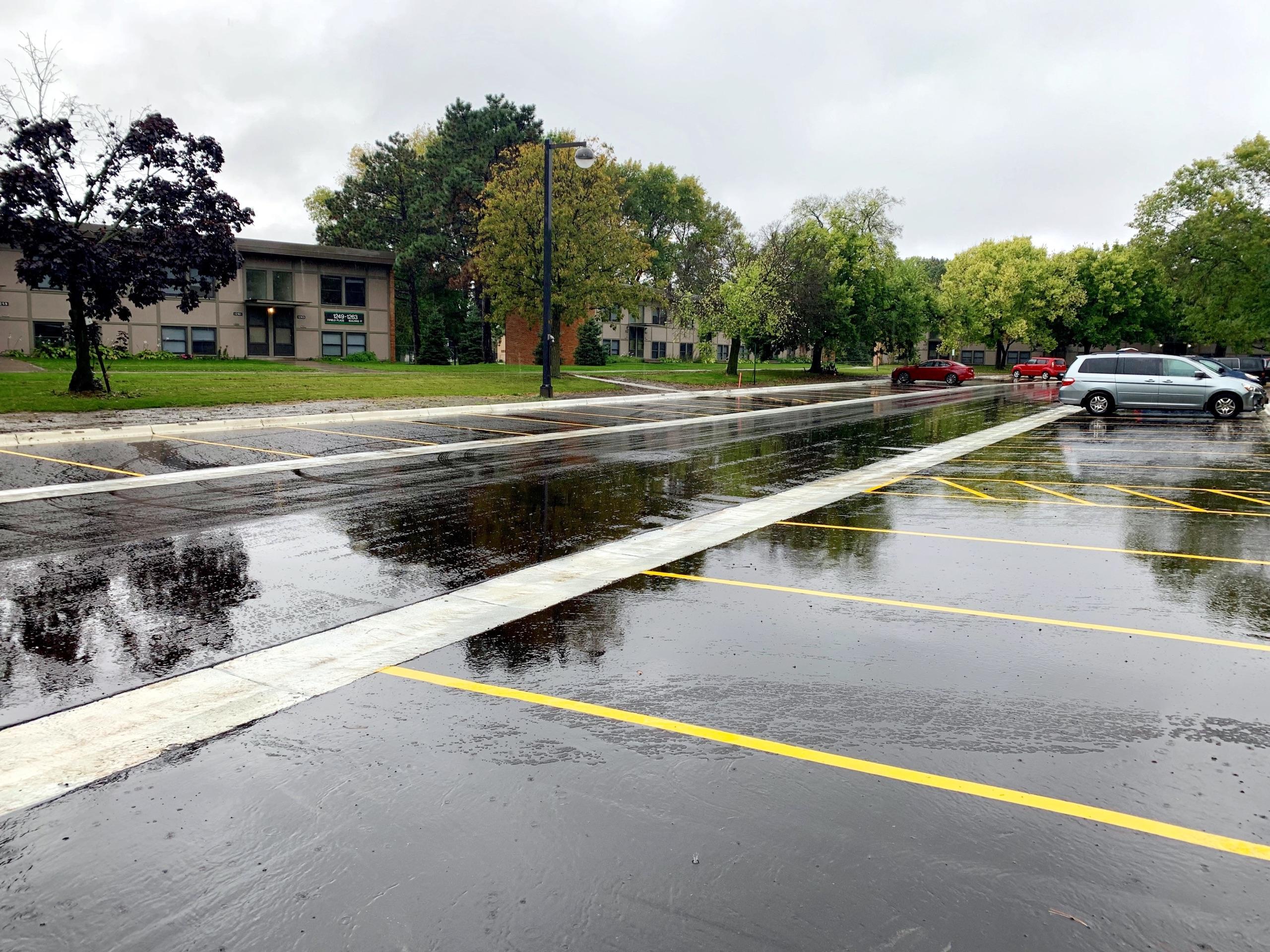
University Capital Plan Adjustments
The University continually requires more of our community's money each year, yet now it also restricts our co-op improvement projects due to their pending, undefined redevelopment plans. Where will the money and improvements come from?
Greetings Neighbors,
Thank you to all for your diligent beautification efforts at our Fall Clean-up this past weekend! Despite a little, pesky snowfall, our grounds now look amazing and are ready for winter! We hope you also had the delight to bond with your neighbors through the experience, as well as during the many other events that day.
Your Board of Directors also prepares the co-op for winter from an internal perspective, discussing several issues of interest at our recent October meeting: University capital plan and planning process, co-op security cameras, and CTC's investment portfolio. Join our next discussion at our upcoming Board of Directors Meeting on November 20, 2019 - 6:30 pm in the Community Center Meeting Room.
Capital Plan Changes: More Money, Less Results
Our U of M liaison, Scott Creer, works with our cooperative as a representative for the University, who owns the land and property. Scott explained the University’s plans in reinvesting the money received by CTC (from our Financial Requirement; from our residents) through a Capital Plan projecting improvements 10 years out. Each year, this plan is re-evaluated by Scott in conjunction with our Management Team and co-op Board to accommodate CTC’s needs, making revisions and adjustments as necessary.
After the University announced their St. Paul Campus Strategic Facilities Plan last year, our Capital Plan started to perform on a situational basis and restrict improvement projects, eliminating or halting many initiatives previously planned. Although it is clear CTC will still be designated for student housing, drastic – and yet unknown – changes are planned for our cooperative. On that foundation and considering depreciable expenditures, the University is now limiting investment developments for our cooperative. One example being the University will not continue to invest in the two-bedroom split or one-bedroom buildings. University's long-term plan for CTC discussed last in Sept. 2019.

Therefore, while our co-op must provide nearly half of our gross income to the University via our Financial Requirement, the University will not continue to invest in our community until the unforeseeable overhaul planned by St. Paul Campus Plan eventually occurs. Despite the cutbacks, the University continually increases our Financial Requirement each year, forcing our co-op to raise rental rates. Even more so, our residents generate the money to fulfill the University Financial Requirement yet will decreasingly experience or benefit from co-op capital improvements – only funding uncertain, potential, future developments standing in the place of their homes today. The ambiguity and contradiction of the Financial Requirement fund's actual use presents questionable motives if for the overall benefit for the co-op community or solely for the future profitability to the University. Financial Requirement details expanded below.
UPCOMING UPDATES
The University’s Board of Regents will announce the progression of the St. Paul Campus Plan at their upcoming meeting on December 12-13. Follow a live stream of the session beginning at 9 am. Our Board will continue keeping track of the St. Paul Campus Plan in order to inform our community.
Co-op Surveillance Cameras

Scott additionally provided updates on the upcoming Capital Project to implement security cameras throughout the co-op, which will be mobile stations like the camera currently deployed at the co-op as borrowed from the University of Minnesota Police Department (UMPD). Our Board specifically requested the mobile station cameras, concluding them as most fit due to their adaptability to move locations for changing trends and their strong, visual presence for crime deterrence. These mobile station cameras will be operated exclusively by UMPD, through which it is increasingly important to report crime in a timely manner to the UMPD before the camera log is periodically deleted (currently predicted at once every three weeks). Report criminal activity and view local crime reports.
CTC Investment Portfolio Adjustment
During our last meeting, we also reviewed CTC investment plan with Morgan Stanley. Keeping with CTC’s values an “environmental mandate overlay” was added, which selects investments in issues with above-average environmental performance and in bonds that fund environmental projects. More on CTC's Investments.
University Financial Requirement (Capital Plan Expanded)
The University of Minnesota, as owners of the property, determines the annual cost contributions and CTC is contractually required to pay as the Financial Requirement, which was 45% ($2,245,234) for the recent fiscal year of July 2017-June 2018. The University uses the money from our Financial Requirement for capital improvements, ASUA, and Housing and Residential Life (HRL) Indirect Recovery Costs. Essentially, the co-op only sees the return of this money through capital improvements: projects and redevelopments including deferred maintenance (i.e. roads, roofs, playgrounds) and equipment (i.e. home appliances). The CTC Board and Management Team provide input on the needed capital improvements with our U of M liaison from Housing and Residential Life, Scott Creer. However, the University has final authority and complete control of the projects and allocated sums to fulfill them, generally modifying projects to meet the U of M’s internal requirements and agenda.

The University raises the amount of money required from the co-op each year (upwards of 4+ percent) and informs the co-op in November of the increased Financial Requirement for the upcoming fiscal year beginning in July. The Board, Management Team, and Finance Committee then determine a plan to fulfill the Financial Requirement, as well as all operational and utility expenses not included in the capital improvements.


CTC, as the managing agent for the University property, is at the mercy of University's discretion due to their ownership of the land and property. The Financial Requirement’s continuous increase, redirecting more money to the University, corresponds with the need to raise residents’ monthly rental rates to cover co-op operational expenses. This additionally affects our member rebate checks, as it becomes progressively difficult to break-even where profits are equal to the costs, not to mention have excess returnable to membership households.
As a cooperative community, the Board will engage in strategic planning for the greater good of a prosperous future. We highly encourage and welcome your participation at our next Board of Directors Meeting on November 20, 2019 - 6:30 pm in the Community Center Meeting Room!
Resources
- University of Minnesota St. Paul Campus Strategic Facilities Plan
- U of M Board of Regents' Long-term Plan for CTC (Sept. 2019)
- U of M Board of Regents Meeting - Live Stream on Dec 12-13
- Board's Approval of Co-op Security Cameras
- Report Criminal Activity / View Local Crime Reports
- CTC Investment Portfolio (July 2019)
- Board's Initial Response to the St. Paul Campus Plan (Oct. 2018)
- Unite in the Resistance / Write Impact Statement (always welcome!)

